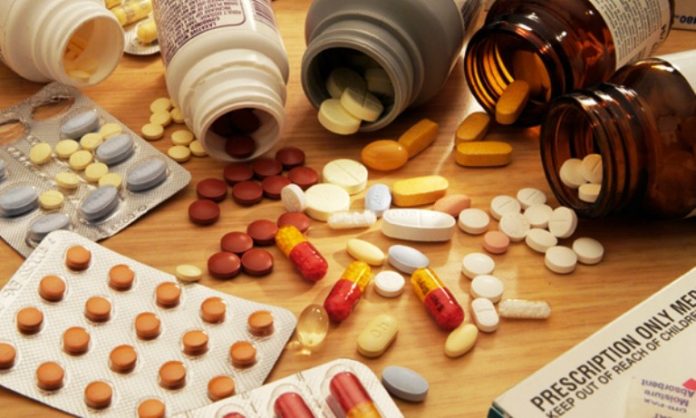- ‘Prices will not increase if rupee remains stabilised, utility prices are maintained and rate of inflation is controlled’
KARACHI: Pakistan Pharmaceutical Manufacturers’ Association (PPMA) on Wednesday announced to decrease the prices of 395 essential medicines.
The prices of essential medicines were earlier reduced by the Drug Regulatory Authority of Pakistan (DRAP) but the pharmaceutical industry had refrained from implementing the authority’s decision.
“Today, we announce to reduce the prices of 395 essential medicines from one per cent to 471pc. Within 15 days, these medicines will be available on reduced prices throughout the country,” said PMMA Chairman Zahid Saeed at a news briefing in Karachi.
Accompanied by Ayesha Tammy Haq, the representative of multinational pharmaceutical companies in Pakistan, and in the presence of several drug manufacturers, the PPMA chairman said the association was forced to lower the prices of medicines owing to the persistent pressure from the federal health minister as well as from the prime minister’s adviser of commerce.
“At the same time, the pharmaceutical industry has voluntarily decided to lower the prices of another 464 medicines by 10-15pc,” the PPMA chairman announced, saying that the medicines, whose prices were being reduced, were well known and commonly used for the treatment of communicable as well as non-communicable diseases.
Recently, the government allowed an increase in the prices of around 45,000 medicines by up to 15pc. However, in some hardship cases, prices of 464 medicines were increased by over 15pc because their cost of production had become unbearable for the industry and production of many of these drugs had been stopped by the pharmaceutical manufacturers.
“It is a very painful and challenging decision for the pharmaceutical industry since hardship cases were decided in Nov 2018 when the Pak rupee stood at 138 against the US dollar. Today it’s at 143,” Zahid Saeed said, adding that the prices would not increase if the rupee remained stabilised, utility prices were maintained and the government controlled the rate of inflation.
The PPMA chairman said that the decisions taken today would be implemented immediately while work on the replacement of stocks has already commenced. “The process to recover and replace the stocks at distributor/retail shelf level will be completed in the next 15 days since management of logistics will take time.”
Zahid Saeed maintained that increase in the prices of medicines had been in conformity with the several directions of the apex judiciary on the issue, adding that in case the government had not allowed the much-needed relief to the Pakistani medicines’ manufacturers in the form of 15pc increase in locally produced drugs, public healthcare system of the country would have been in shambles due to unavailability of medicines.
“The cost of production of the local Pharma industry had increased manifold since 2018 due to an unprecedented decrease in value of rupee as compared to the dollar, keeping in view that up to 90pc raw material of the industry was imported,” he informed.
Urging the government to slash duties and taxes on import of raw material, including packaging material, he said the industry contributed Rs50 billion annually to the national exchequer and if government made the industry tax-free, the manufacturers could slash the prices by another 15-20pc. “The industry could also earn valuable foreign exchange by becoming the second largest exporting industry of Pakistan within two years,” he concluded.




